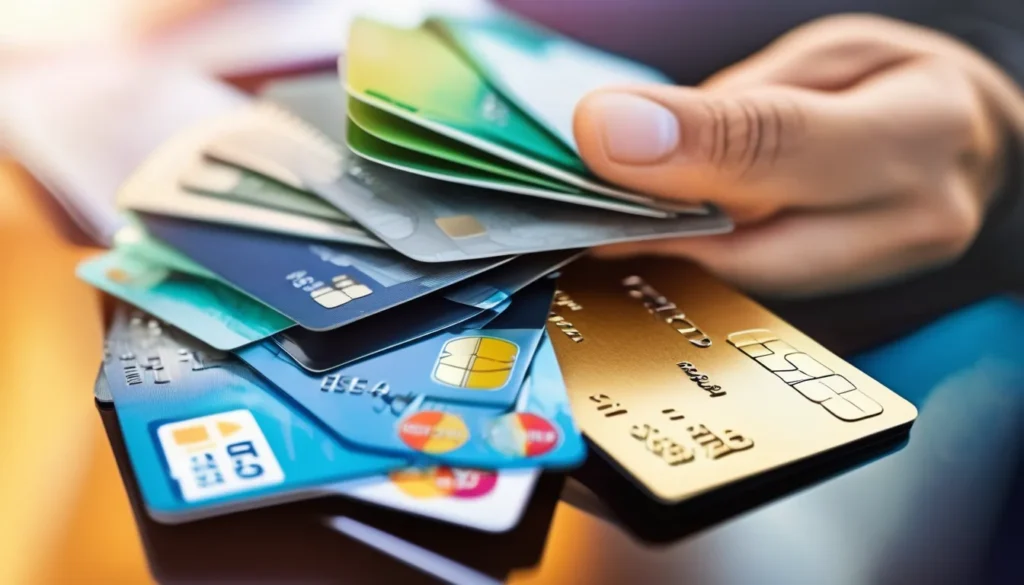Credit cards are often seen as a tool for spending, but they can also be an invaluable resource for learning about financial management. Used correctly, they help you understand budgeting, interest rates, credit scores, and responsible borrowing.
In this guide, we’ll cover:
✅ How credit cards teach financial discipline
✅ How to use credit cards to track spending
✅ The impact of interest rates on long-term debt
✅ The role of credit cards in improving your credit score
✅ Tips to use credit cards for smarter financial habits
Let’s dive in! 🚀

1️⃣ Understanding Credit Cards as a Financial Tool
A credit card is more than just a way to pay—it’s a financial tool that helps you learn about money management, credit building, and responsible borrowing.
📌 Key Financial Literacy Concepts You Learn from Credit Cards:
✔ Budgeting & Expense Tracking – Learning to track expenses using credit card statements.
✔ Interest Rates & APRs – Understanding how carrying a balance impacts your finances.
✔ Credit Scores & Credit Reports – Learning how credit card use affects your score.
✔ Debt Management – Recognizing the importance of on-time payments and avoiding high-interest debt.
🔗 Understanding Credit Reports
2️⃣ Learning Budgeting & Expense Tracking with Credit Cards
Credit cards provide detailed statements that help track where your money goes each month.
📌 How to Use Credit Cards for Budgeting:
✔ Review Monthly Statements – Identify spending patterns and areas to cut back.
✔ Use a Budgeting App – Apps like Mint, YNAB, or Personal Capital categorize spending.
✔ Set Spending Limits – Many banks allow you to set spending caps to avoid overspending.
✔ Pay Off Balances Weekly – Treat your credit card like a debit card to control cash flow.
🔗 Best Credit Cards for Budgeting & Rewards
3️⃣ Understanding Interest Rates & Avoiding Debt Traps
One of the most important financial lessons you can learn is how interest accumulates when carrying a balance.
📌 Example of Interest Accumulation on a $1,000 Balance:
- APR: 22%
- Monthly Payment: $50
- Time to Pay Off: 24+ months
- Total Interest Paid: $250+
🚀 Smart Tip: Always pay the statement balance in full to avoid interest.
🔗 How to Reduce Credit Card Interest & Fees
4️⃣ Learning About Credit Scores & Credit Building
Your credit score is a major factor in getting loans, mortgages, and even job approvals. A credit card helps you build and improve your score by:
✔ Making On-Time Payments – 35% of your credit score is based on payment history.
✔ Keeping Utilization Low – Using less than 30% of your credit limit improves your score.
✔ Increasing Credit Age – The longer you keep a card open, the better for your score.
📌 Example of How Credit Cards Affect Your Score:
| Credit Card Usage | Impact on Score |
|---|---|
| Paying on Time | ✅ Positive |
| Carrying High Balances | ❌ Negative |
| Closing Old Cards | ❌ Negative |
🔗 Best Credit Cards to Build Credit
5️⃣ Using Credit Cards to Build Responsible Spending Habits
Credit cards teach discipline and responsible financial behavior when used wisely.
📌 Smart Credit Card Habits:
✔ Always Pay the Full Balance – Avoid interest charges and build strong credit.
✔ Limit Unnecessary Purchases – Stick to essential spending only.
✔ Set Up Automatic Payments – Prevent missed payments and late fees.
✔ Use Credit Cards for Essentials – Gas, groceries, and utility bills keep credit active without overspending.
🔗 How to Avoid Common Credit Card Mistakes
6️⃣ How Credit Cards Help in Emergency Financial Situations
A credit card acts as a financial backup for emergencies, ensuring you have access to funds when needed.
📌 Emergency Uses for Credit Cards:
✔ Unexpected Medical Bills – If you need urgent care but lack cash.
✔ Car Repairs & Travel Delays – Cards cover rental and repair costs when needed.
✔ Home Repairs – If an urgent home repair arises before payday.
🚀 Smart Tip: Always have an emergency fund as a first option before relying on credit cards.
🔗 Best Credit Cards with Emergency Protection
7️⃣ Frequently Asked Questions (FAQs)
1️⃣ Can credit cards actually improve financial literacy?
✔ Yes! Credit cards help you understand credit scores, interest rates, and responsible borrowing.
2️⃣ How can I use a credit card to improve my money habits?
✔ By using a credit card for necessary expenses only, tracking spending, and always paying in full.
3️⃣ Should I use my credit card for all purchases?
✔ Not necessarily. It’s best used for planned purchases, rewards, and emergencies while keeping spending in check.
4️⃣ Does having multiple credit cards help financial literacy?
✔ It can. Managing multiple cards teaches credit utilization, due date management, and responsible spending.
5️⃣ What happens if I only pay the minimum on my credit card?
✔ You’ll get stuck in debt for longer and pay much more in interest over time.
🔗 Read: What Happens If You Only Pay the Minimum
🚀 Final Thoughts – Using Credit Cards as a Financial Education Tool
A credit card is not just a spending tool—it’s a financial learning resource. By using it wisely, you can:
✔ Track and manage expenses
✔ Understand credit scores and reports
✔ Learn about interest rates and debt repayment
✔ Build strong financial habits for the future
📌 “Want to choose the best credit card to improve your financial habits? Compare top offers today!”
🔗 Compare the Best Credit Cards